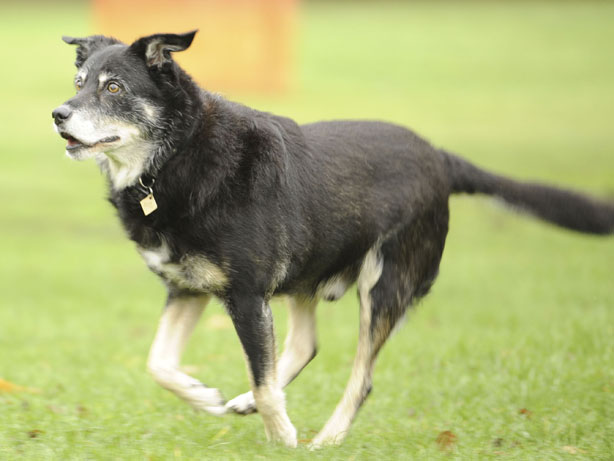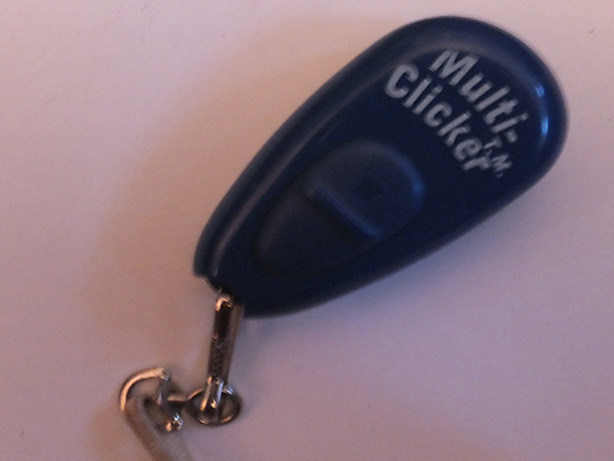
CMA Vet Review
 The Competition and Markets Authority is undertaking a review of the small animal veterinary practice market.
The Competition and Markets Authority is undertaking a review of the small animal veterinary practice market.
There are concerns about pricing, access to prescriptions and medications and the variety of services that are available.
In the days of Alf Wight, most vets were self-employed and often worked out of their home, much as GPs did. They did all their own out of hours work. It certainly wasn’t as rose-tinted as Wight portrayed in his James Herriot books (for a more accurate portrayal see Gareth Steel’s Never Work With Animals, Harper Collins, London, 2022) and options open to vets were several limited. Most people also had few expectations that small animals could be helped by vets in many situations and prophylactics, if used, were primitive.
Veterinary treatment options have expanded out of all proportions and people often expect the same high standard of treatment for their companion animal as they do themselves. This has to be paid for. The difference is that, shielded by the NHS where, however poor we may perceive it to be at times we do not pay at the point of receipt of care, owners therefore rarely understand how high the costs are for the provision of that treatment.
Small animal practices have changed too. They moved out of private homes into high streets and now, even independent vets often need to have more than one practice in order to survive in a competitive market. Meanwhile, independent practices were consolidated into groups and the groups are being bought out by venture capitalists. At this end of the chain, vets have little or no control over policies, practices or prices. Just as the corner shop became the high street emporium and then the out-of-town shopping “village”, the consolidation takes the individual vet further away from the business and the clientele and ultimately leads to far less choice for the client.
That’s capitalism folks.
Fortunately we still have some checks. The CMA have 3 surveys:
For owners who have paid for veterinary services within the last 3 years
For veterinary staff
For anyone not in the above 2 categories with an interest.
The survey will be open for “up to 6 weeks” which suggests that it may close earlier if sufficient responses are received.
A Hostile Environment
 Local authorities are introducing an increasing amount of Public Space Protection Orders in parks and green spaces limiting dogs.
Local authorities are introducing an increasing amount of Public Space Protection Orders in parks and green spaces limiting dogs.
On the surface, it is legislating for what should be reasonable etiquette, but it is also making those spaces seem very hostile for dog owners. I was shocked when visiting a local park that I hadn’t used for a while (I am blessed with a myriad of choices) to encounter sign after sign prohibiting dogs and dog owners from using a space or threatening fines for not picking up or having dog muzzled or on a lead. I felt unwanted as soon as I walked in. I might add that a couple with two out of control children were outside of the area set aside for their offspring and allowed one of them to slam right into my puppy who was quietly walking past on a lead. Not a hint of an apology for their lack or control or the potential to frighten my dog, needless to say. If my dog had reacted, I can soon see who would have been blamed.
Whilst I support the aim to create responsible dog ownership, this is not backed up with education or support for training. That same park would charge me a hefty annual fee for the privilege of walking in the restricted spaces if I were to use it to train clients and their dogs. It is easy to see that it could be perceived as easy money and a grabbing of low hanging fruit should a dog owner miss faeces (who hasn’t lost it at one time or another?) or have not noticed that their poo bags had fallen out of a pocket.
Although there is no agreement between surveys as to whether dog ownership has increased substantially over the last three years, the perception in many areas is that it has, and the PDSA PAW Report 2022 found that a large percentage of new owners were young. It would be interesting to know also how many were first time owners. Again, anecdotally, that seems to have increased. Alongside inexperience, there are little or no resources enabling local authorities to educate dog owners as to their responsibilities and no support for the qualified professionals who do.
Playing with sticks is dangerous for dogs and unwise for local authorities. Carrots on the other hand are good for both.
Shocking Shame
 At last legislation is due to come into force on February 1st, 2024 to ban shock collars in England.
At last legislation is due to come into force on February 1st, 2024 to ban shock collars in England.
However, there is a strong lobby that regards shock collars as the only way to prevent livestock worrying and members of the House of Lords who happily boast of using them on their companion dogs. It is 23 years since they were banned in Wales, a country with 11 million sheep and just 3.1 million people.
There is plenty of research that shows that severe punishment – and we are talking about electrocution after all – does not work and research that shows that shock collars cannot and do not deliver a reliable measured shock. It is illegal to electrocute children, why are dogs any different?
We cannot take the passing of this legislation for granted, Lobby your MP and write to DEFRA in support.
You’ve Got Mail
 The Royal Mail is running its annual Dog Awareness Week as it announces a horrific increase in injuries to postal workers.
The Royal Mail is running its annual Dog Awareness Week as it announces a horrific increase in injuries to postal workers.
There were 1,916 incidents involving dogs and postal workers last year – an average of 37 a week or 5 per day.
902 incidents (47%), took place at the front door, 515 (27%) in a garden, drive or yard and 118 (6%) of attacks in the street. 381 (20%) injuries occurred via a letterbox and such incidents prompted a High Court ruling in 2020 enabling prosecution of anyone in charge of an animal that causes injury to any person making a delivery, regardless of whether the owner is at home.
Royal Mail workers lost 3,014 days to injuries in 2022/23 with one severely injured worker being absent from work for 139 days.
Territorial guarding is common in dogs – and indeed something for which we have selected for in breeds. Many owners like the idea that their property is being “looked after” by a dog when they are absent. However, one of the reasons that injuries are increasing, apart from an increase in dog ownership, is that owners are no longer taking responsibility for their dogs, either when they are present or when dogs are left on their own.
Simple and inexpensive measures could prevent all postal workers from being injured.
- Keep your dog away from the front door – it’s safer for your dog and safer for visitors. Use a child gate or close inner doors
- Supervise your dog when in a garden, especially near the front door. This will also prevent theft
- Fit a letter basket to the front door – it will also stop your post from being damaged by your dog
- Obtain professional help if your dog has serious aggression problems.
Remember, it is not the dog’s fault – YOU are responsible.
Bully Off
 It has been an appalling year already for serious injuries and fatalities involving dogs.
It has been an appalling year already for serious injuries and fatalities involving dogs.
The Met alone seized 479 out-of-control dogs under the Dangerous Dogs Act in 2022 146 more than in 2021. 154 dogs had already been seized by May this year.
44 of the seizures were XL bullies, compared to 16 Staffie crosses. No American bulldogs were seized in 2018 or 2019 by the force. In the UK overall in 2022, there were nearly 22,000 cases of out-of-control dogs causing injury. In 2018, there were just over 16,000, the UK’s dog population having been estimated to have risen by only 15% in the same period of time.
The reasons for the rise in incidents are complex, but include poor breeding and rearing, poor handling and ignorance of owners plus the minority who deliberately want their dogs to be perceived as intimidating.
There is a push for XL bullies to be added to the list of banned breeds but this would not solve the problem. In fact, yet more legislation will do little but to enable the police and other agencies to deal with the “low hanging fruit” unless considerable resources are committed to back up the legislation that we already have and which is rarely enforced. This would go a long way to preventing back street breeding, illegal boarding and out of control dogs.
Dogs have always been used to exemplify the perceived status of their owners – and that applies as much to the Labrador and spaniel (“my other house is an estate”) as to the XL Bully (be scared of my dog, be scared of me). Demonising whatever the latest fad is in dog breeding ignores the elephant in the room that all dogs have the potential to be dangerous in the wrong hands and under the wrong circumstances.
Research proves that BSL has failed everywhere it has been tried: research and statistics prove that the Dangerous Dogs Act has been an abject failure. Let’s not allow MPs to tick a box, add a breed and then think that their job is done. It won’t save lives.
Shop Fitting
 It can be challenging shopping when one has a dog, especially if one lives alone. Dogs should never be left alone outside and many shops – and even shopping centres – ban dogs.
It can be challenging shopping when one has a dog, especially if one lives alone. Dogs should never be left alone outside and many shops – and even shopping centres – ban dogs.
Often this is due to misunderstanding the law – dogs are only legally prohibited from food preparation areas. That said, it is frequently difficult to take dogs into banks, post offices and shops where well-behaved dogs should not be a problem.
Some people don’t like dogs; I don’t like children, but I still have to put up with them, and they are often exhibit far worse behaviour than my dog.
So good news, then that Dalton Park shopping centre in County Durham not only allows dogs but facilitates owners. Each entrance provides water, poo bags and dog waste bins and the centre provides canine first aid facilities. Dog-friendly shops display a sticker in their window and there happen to be 55 acres of parkland attached.
Hopefully, where Durham leads, others will follow. After all, with 26% of the population owning a dog, it makes good business sense too.
How To Get Free Dog
It behoves owners to take suitable precautions to keep their dogs safe when they are out, not least because of the number of dog thefts across the UK.
However, there is a new twist on this perennially increasing crime thanks to Tik Tok. So-called prank videos are used to goad children into behaviour that is often anti-social and, in this case illegal.
An eighteen year old filmed himself snatching an elderly women’s dog and running off with it, posting the video with the caption How to get a free dog.
Although he gave the dog back, it can only be imagined how distressing this must have been for owner and dog. Fortunately, he was arrested for causing a public nuisance.
Far too many owners fail to train good recall and fail to pay attention to their dogs when out, even, as I discovered to my cost, when their dog lays into another dog. In that case, the owner was far too interested in her telephone call than in getting her dog away after it had bitten my puppy. When combined with the shocking number of dogs off lead on roads, it’s hardly surprising that dogs are vulnerable to such stupidity and downright criminality.
In The Dog House
 Concerns are mounting over the rising number of people in the UK who are obliged to rent rather than buy a home. This can lead to constant moves and extreme difficulty in finding a new home, often at short notice, which is exacerbated for people who own an animal.
Concerns are mounting over the rising number of people in the UK who are obliged to rent rather than buy a home. This can lead to constant moves and extreme difficulty in finding a new home, often at short notice, which is exacerbated for people who own an animal.
The long-overdue Renters (Reform) Bill 2023 includes clauses that obliges landlords to consider a request to keep a companion animal which they must not “reasonably refuse”. An initial response to a request must be supplied in writing “on or before the 42nd day after the date of the request” and there are specified periods for response on both sides where further information is required before a tenancy agreement can be made and where the tenancy is a sub-let. The landlord may (and probably will) oblige the tenant to take out insurance against any damage.
There will no doubt be landlords who will do everything possible to exploit potential loopholes to prevent renters from keeping animals and, of course, it will take a while before challenges to refusals and other issues can be tested in case law, a luxury which many renters may not afford to be able to pursue.
However, it is an important step forward in enshrining the right to live with a companion animal in rented accommodation.
Of course, it behoves the owner to train their animal to ensure that damage and nuisance is less likely to occur which, in and of itself, will be of benefit to society.
Electric Kickback
 Stop Press: The government has announced that it will at last introduce a complete ban on shock collars in England from February 1st, 2024. About time too.
Stop Press: The government has announced that it will at last introduce a complete ban on shock collars in England from February 1st, 2024. About time too.
The Government has been too preoccupied with its own internal wranglings to prioritise the ambitious raft of animal welfare legislation into effect, having announced in 2022 that it would be put on hold.
This includes the proposed ban on shock collars, even though the Scottish government put guidance in place advising against their use in 2018. Whilst this is still too weak, it is better than the nothing that pertains to England and Wales.
Now a group of dog boarders have petitioned DEFRA to oppose the ban, claiming that it puts their livelihoods at risk. It is easy to react in an emotional way because there is no doubt that electrocuting animals in the name of training is unethical.
More importantly such training, it is ineffective and, in spite of protestations to the contrary, there is a great deal of good scientific research available to prove it. At best, punishment only stops the behaviour at the time that the behaviour is occurring and the dog does not learn an alternative behaviour – indeed cannot learn an alternative behaviour when under stress and suffering pain.
There is no doubt that more needs to be done to train dogs not to harass wildlife, livestock and domestic animals and it is imperative that the results of any training are as effective as possible as well as ethical.
DEFRA needs to throw this complaint out and more needs to be done to educate people in effective training.
State Of Play
 I often wonder why some people bother to own dogs. After all, they are messy, have a very different sense of disgust to humans, disrupt our lives and they don’t come cheap.
I often wonder why some people bother to own dogs. After all, they are messy, have a very different sense of disgust to humans, disrupt our lives and they don’t come cheap.
The pluses must outweigh the minuses otherwise we wouldn’t do it again and again, however much we feel that it would be impossible to get another dog after a beloved dog has died.
It was an idyllic morning when I took my puppy out for a walk this morning. Blue sky and full sun after days of rain and cloud and not too warm – perfect. I passed a woman on her mobile telephone, her dog’s eyes fixed somewhat worriedly on mine and I overheard her say “I’m only walking the dog – so boring”. She hadn’t even noticed that we were there, never mind that her dog was initially hesitant and she obviously had no interest in interacting with her dog.
We did in fact get talking as she reminded me that we had met on another occasion when it wasn’t appropriate for our dogs to interact. She admitted, although I had not solicited it, that she had only really bothered giving her dog toys when she was puppy and that she didn’t really play with her, although, she explained that she gave her lots of cuddles. It was abundantly clear that, after some polite conversation with me, she couldn’t wait to get back on her mobile telephone.
I know that I am an outlier in not owning a mobile telephone, but I would like to think that if I did own one, I would not use it for trivial (not to mention public) conversations instead of enjoying the day and my dog. Actually, come to think of it, it’s one of the main reasons why I don’t own one.
Get a life people – it’s a much better option than forcing everyone to listen to the minutiae of yours.




